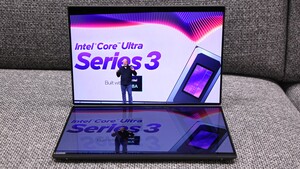S
sonyfreak1234
Gast
Krautmaster schrieb:na dann warten wir mal ab ob es eine GT3 ohne 128 MB Cache geben wird bzw ob es diesen überhaupt geben wird.
Wie definierst du "was bringen" + - 10% Performance ? Oder muss es für dich damit es funktioniert doppelt so schnell laufen?
Ich finds klass einfach mal pauschal zu sagen "Ich hab (mehr) Ahnung und weiß, dass die 128MB nichts bringen" - sich mehr zu disqualifizieren war wohl nicht drin oder?
Ich erspar mir jetzt den Bogen zu deinem zweiten Satz zu spannen.
was sollen den die miekrigen 128mb bringen, ich mein garnix ausser werbung.
wenn dann wäre ein 512mb/1gb stacked memory gut.



